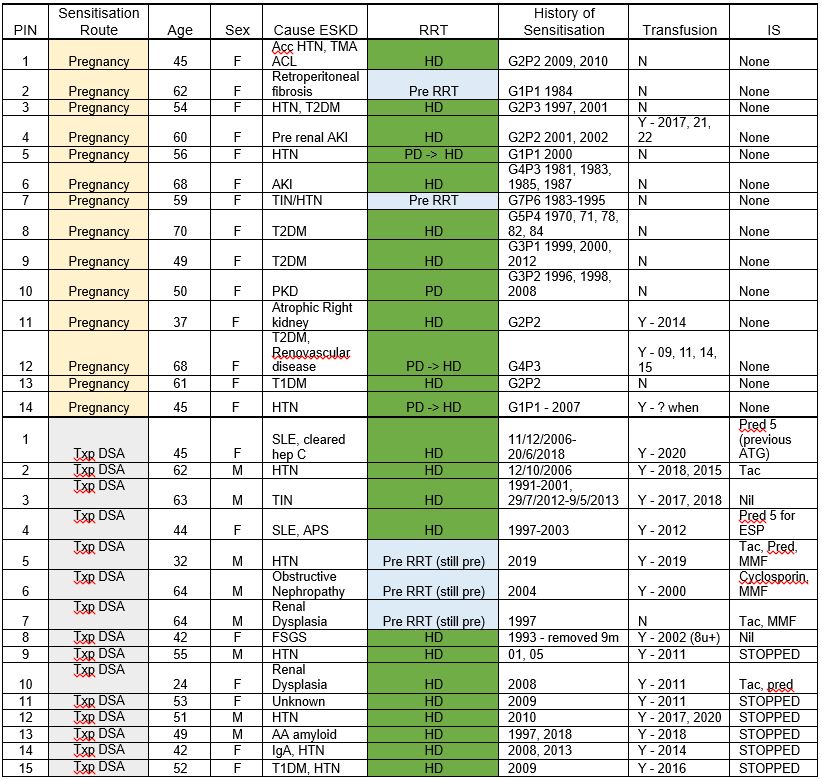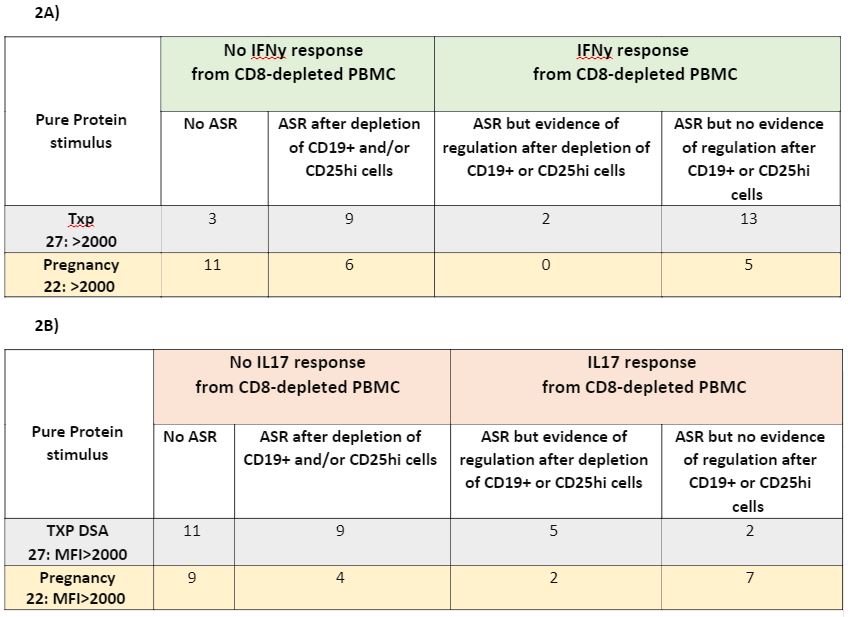Regulation of gamma interferon and interleukin 17a human leucocyte antigen specific T Cell responses differ according to the route of sensitisation
Sumoyee Basu1, Caroline Dudreuilh1, Hannah Burton1, Chloe Martin2, Kate Bramham1, Giovanna Lombardi1, Olivia Shaw2, Anthony Dorling1.
1School of Immunology & Microbial Sciences, Kings College London, London, United Kingdom; 2Clinical Transplantation Laboratory, Guy's and St Thomas' NHS Foundation Trust, London, United Kingdom
Introduction: There is a huge inequity for women with end stage kidney disease, with worse transplant access, poorer graft survival and longer waiting times. This is widely attributed to HLA sensitisation resulting from pregnancy. However, there is sparse understanding of what underpins regulation of pregnancy alloresponses and whether these are the same mechanisms as post transplantation. I hypothesised that altered Th1 or Th17 antigen specific T cell responses may play a role, since they are crucial cytokines in interplay of T and B cells in the germinal centre where antibodies form.
Methods: >5000 patients with an eGFR<25 mL/min/1.73m2 were screened at 2 London hospitals to identify patients sensitised mainly by renal transplantation (txp) OR pregnancy only. 14 previously pregnant patients had persistent antibodies on all research and historic clinical PRA tests as did 15 txp patients, including all potential women sensitised by txp alone (Table 1).

CD8 depleted peripheral blood mononuclear cells were rechallenged with HLA pure proteins (PP) representing previously encountered paternal or txp antigen to evaluate indirect alloresponses. Using IFNγ and IL17 FluoroSpots, antigen specific responses (ASR) by CD4 cells were compared in 49 independent assays, including conditions with further depletion of CD19 and CD25++ cells. Fisher’s exact 2 tailed test was used for statistical comparisons.
Results: The pregnancy group had a higher age average 57 years compared to 49 in the txp group. Previous transfusion and concurrent immunosuppressants were also less prevalent.

Samples sensitised by rxp were significantly more likely to demonstrate IFNy ASR compared to those sensitised by pregnancy (24/27 vs 11/22 p=0.0096) as shown in Table 2. This may reflect continued antigen exposure from retained donor tissue. There was no difference in the proportion of ASR samples showing evidence of T or B cell regulation (p=0.7247). Comparatively Txp samples were more likely demonstrate IFNy ASR than IL17 (p=0.0276). There was no significant difference between groups with regards to the proportion showing IL-17 (16/27 vs 13/22 p=0.678). However, samples sensitised by Txp were more likely to be regulated by B or Tregs than those sensitised by pregnancy (14/27 vs 6/22 p=0.0405). Ongoing deep phenotyping flow cytometry analysis will identify regulatory and effector cell subsets underpinning these functional differences.
Conclusion: This represents the first comparison of HLA specific responses in patients sensitised by previous txp vs pregnancy indicating that regulated IFNy responses specifically associate with transplantation and pregnancy has more unregulated responses. Given not all HLA antibodies confer the same txp outcome risk, improved understanding of underlying T cell sensitisation status may help to stratify patients awaiting transplantation and finesse organ allocation schemes helping to address the inequity that women currently face.
Guy's & St.Thomas' Kidney Patients' Association. Medical Research Council MR/T006560/1.
[1] HLA Antibodies
[2] Allorecognition
[3] Pregnancy
[4] Sensitization
